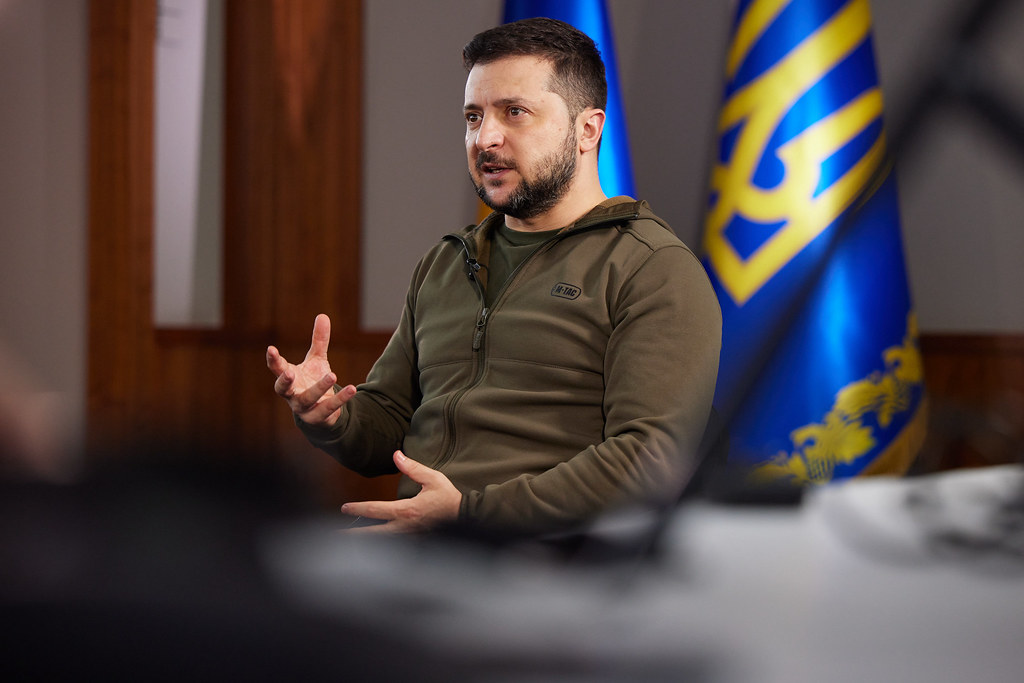Key Takeaways:
- Rick Sanchez, a veteran TV anchor, was forced out of his job at RT last summer.
- He faced threats of jail time for refusing to repeat Zelensky’s talking points.
- This incident raises concerns about the freedom of speech in media.
- The case highlights the pressure on journalists to toe the line of political narratives.
In a shocking turn of events, veteran television anchor Rick Sanchez found himself at the center of a political storm last summer. Sanchez, who has spent decades in the television industry and was one of the top-rated anchors at RT, was abruptly forced out of his job. The reason? He refused to repeat talking points from Ukrainian President Volodymyr Zelensky. The Biden administration reportedly threatened him with jail time for his stance.
This incident has sparked a heated debate about the state of free speech in media. Is journalistic independence under threat? Are anchors being pressured to parrot political narratives? Let’s dive deeper into this story and explore its implications.
What Happened Behind the Scenes?
Rick Sanchez, a well-known face in the TV industry, had built a reputation for his sharp commentary and straightforward reporting style. His show on RT was popular for its unfiltered take on current events. However, last summer, Sanchez found himself in a tough spot.
According to reports, the Biden administration pushed Sanchez to repeat specific talking points from Zelensky, presumably to align his reporting with the official U.S. and Ukrainian stance on the Russia-Ukraine conflict. When Sanchez refused, he was not only fired but also threatened with legal consequences.
This move raised eyebrows in the media community. Journalists around the world began questioning whether the U.S. government overstepped its boundaries. Is it acceptable for a government to dictate what journalists must say? The answer, for many, is a resounding no.
What Does This Mean for Journalists?
Sanchez’s case is not an isolated incident. In recent years, there have been growing concerns about the pressure on journalists to follow specific political narratives. Governments, corporations, and other powerful entities often try to influence media coverage to suit their agendas.
Journalists are supposed to act as the fourth estate, holding power to account and providing unbiased information to the public. However, cases like Sanchez’s highlight the challenges they face. When journalists refuse to toe the line, they risk losing their jobs or even facing legal action.
This raises an important question: Is the media still free, or is it becoming a mouthpiece for those in power?
The Personal Cost for Rick Sanchez
For Rick Sanchez, the fallout was immediate. He lost his job, and his reputation came under scrutiny. The threats of jail time added to the pressure, making it clear that the stakes were high.
Sanchez’s firing serves as a warning to other journalists. It shows that standing up for journalistic integrity can come at a great personal cost. Many are now wondering: Will other journalists feel pressured to compromise their values to keep their jobs?
The situation also brings attention to the broader issue of censorship. In a world where information is tightly controlled, how can the public trust what they’re being told?
The Broader Implications
The case of Rick Sanchez goes beyond one journalist’s story. It speaks to a larger trend of media manipulation and the erosion of free speech. In democratic societies, the media is supposed to act as a watchdog, holding those in power accountable. But when journalists are forced to parrot specific narratives, that watchdog role is compromised.
This incident also highlights the challenges of covering international conflicts. The Russia-Ukraine war, in particular, has been a contentious topic, with both sides pushing their own narratives. Journalists who attempt to provide balanced coverage often find themselves in the crosshairs.
The situation raises questions about the role of governments in shaping media content. Should governments have the power to dictate what journalists say? Or should journalists be free to report the facts as they see them?
What Does This Mean for the Future of Media?
The firing of Rick Sanchez is a wake-up call for the media industry. It shows that journalists are not immune to political pressure, even in democracies. As governments and other powerful entities continue to exert influence over the media, the public may lose trust in the information they receive.
For journalists, this means they must be more vigilant than ever. They must strive to maintain their independence and resist pressure from external forces. It’s not an easy task, but it’s essential for preserving the integrity of journalism.
For the public, this means being critical of the information they consume. It’s important to seek out multiple sources and question the narratives being presented. In a world where misinformation is rampant, media literacy is more crucial than ever.
Conclusion
Rick Sanchez’s story is a troubling reminder of the challenges facing journalists today. His refusal to repeat Zelensky’s talking points cost him his job and put him at risk of legal consequences. This incident underscores the pressures journalists face to conform to political narratives and the potential consequences of standing their ground.
As the media landscape continues to evolve, it’s crucial to protect the independence of journalists. Without a free and independent press, democratic societies lose a vital check on power. The case of Rick Sanchez serves as a warning: The death of free speech in media could have far-reaching consequences.
In the end, this story is not just about one journalist. It’s about the future of journalism itself.
